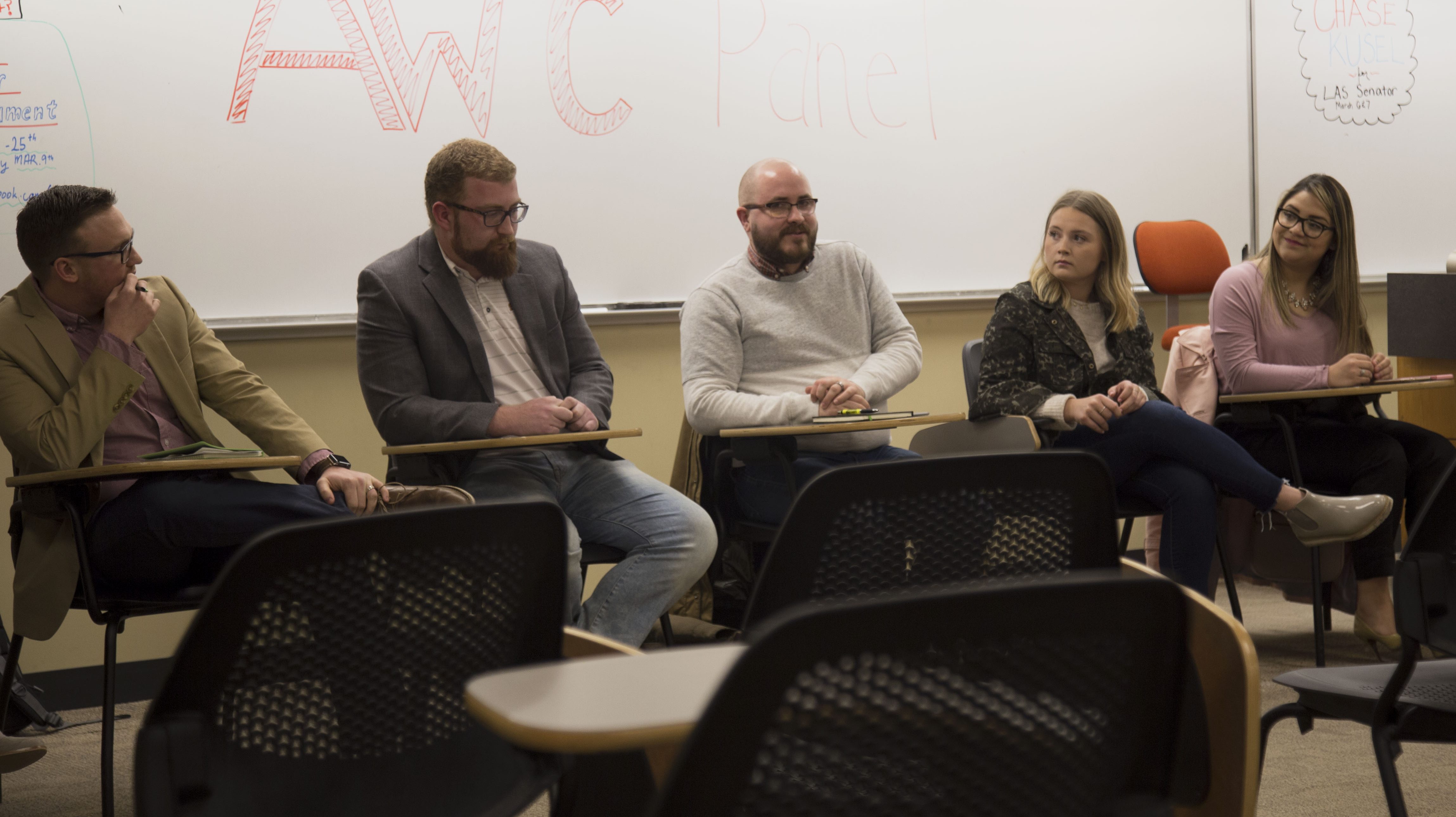
By Tara Larson, senior in journalism and mass communication
When there’s an opportunity on campus to get some advice on internships and jobs, I jump at the chance. Earlier this semester, I attended a panel on the topic, hosted by Iowa State’s Student Chapter of the Association for Women in Communications.
Seven panelists answered questions ranging from cover letter tips to what to bring to an interview. These speakers included Rhett Allen, Iowa State Athletics marketing intern; Maria Charbonneaux, Greenlee communications specialist; Eliza Kjar, former Weber Shandwick corporate intern and LS2group public relations/affairs intern; Josh Ladd, ZLR Ignition senior account manager; Juli Probasco-Sowers, Greenlee internship coordinator and academic adviser; Aileen Rojas, Farm Bureau Financial Services social media coordinator; and Travis Ziemke, Trilix media manager.
Here are a few tips I picked up from the panel that may also help you in your quest to land an internship or job:
Your connections are important.
I’ve heard the phrase, “It’s not what you know; it’s who you know” dozens of times throughout college, and the panel seemed to agree with that logic. Speakers said companies are much more likely to hire you if you have talked with someone within the organization at some point.
Don’t count out other connections, however. Your professors, for example, probably want to help you. They often have connections with a company or might know someone who knows someone to help you get your foot in the door. And, if worse comes to worst and you can’t find a connection before applying, your cover letter can make the difference. Think of a cover letter as your first chance to introduce yourself and make an impression. It’s your opportunity to show your interest in and knowledge of a company when you haven’t had a chance to make a face-to-face connection.
Get and show your experience.
Panel speakers also discussed the importance of being involved and showing real work on your resume and portfolio. Classwork is fine, but additional skills and experience gained through student media or campus clubs could put you ahead of others applying for the same position. Also, it can be beneficial to put your work into numbers and show results of what you’ve done in clubs or internships.
There are lots of ways to prepare for an interview.
One of the best ways to prepare for an interview is to research the company. Knowing a company’s history, clientele, relevant work, etc. can help you feel more prepared, and potentially save you from embarrassment. Always ask questions when given the opportunity, and make sure to ask about the next steps when the interview is wrapping up. Taking notes during the interview can also show you’re engaged and interested — as long as doing so doesn’t distract you from the conversation. Bring a notepad and pen so you’re prepared, and jot down key details to jog your memory later.
You can apply for internships or jobs you aren’t totally qualified for.
This one may be a little trickier, but you may not always need to rule out a job if you’ve just graduated and the application says three years minimum of work experience is required. If the job description mostly matches your skills and qualifications and you can show you have the experience, then go for it. Even if you don’t get offered the job, it can’t hurt for the company to have your resume on file.
Follow @ISU_AWC on Twitter for updates on future meetings.